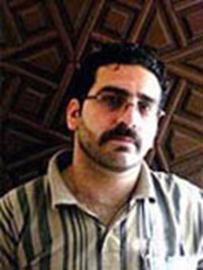The Questions of Oral History Interview (Part III)
Interviewer Should Use Ethology
Akram Dashtban
Translated by Ruhollah Golmoradi
2018-7-3
The following text was prepared based on the call for questions on oral history in which from perspective of one of those who has produced works by using this method, the question "what are characteristics of oral history interview questions?" has been answered.

Saying that there are so many books on how news interviews have been published and one of main strategies in oral history interview is interviewee's intimacy with memory teller, Hasan Shirdel added, "An interview in oral history which is conducted by interviewer is different from news interview. In an interview of oral history, interviewer should use psychological techniques and know ethology. When he/she goes to a warrior to record his memories, she/he has to study lives of people who had experienced the war, or narrator's friends from whom some books have been published before asking and conducting the interview; or, if she/he does not have access to books, attend in their friendly meetings so that she/he can communicate with interviewee or narrator's living environment and ask applied questions based on it. When interviewer goes to narrator with this background, he/she can persuade narrator to carefully remember memories with challenging questions derived from similar experiences. Interviewer in oral history walks on the edge of the sword, and if he/she makes a mistake, he/she enters story space, and if proceed properly it would be the same oral history.
Pointing out that for oral history in field of activity of this method in our country there is still no original and defined basis for interview, he says, "no fundamental basis have been adjusted and determined in Hozeh Honari as a center that addresses this topic. In our country, one who wants to go to story writing read books of Ebrahim Younesi and Jamal Mirsadeghi and by referring to their books will become familiar with framework of story writing; but in field of oral history, there has not been any book in subject of biography interview, so each person raise a subject as he/she likes and writes a book, and then wrestle with whether introduce the book as memory or oral history.
■
Iranian Oral History Website raises questions about oral history for experts and practitioners of this subject and releases answers for the audience. Responses altogether will have significant results. If you have any questions, please post it in this page in order to read comments of experts and practitioners of oral history about it.
A Strong Interview Is Tied with Research
Interview Is the Heart of Oral History
Number of Visits: 3688








The latest
Most visited
The Arab People Committee
Another event that happened in Khuzestan Province and I followed up was the Arab People Committee. One day, we were informed that the Arabs had set up a committee special for themselves. At that time, I had less information about the Arab People , but knew well that dividing the people into Arab and non-Arab was a harmful measure.Kak-e Khak
The book “Kak-e Khak” is the narration of Mohammad Reza Ahmadi (Haj Habib), a commander in Kurdistan fronts. It has been published by Sarv-e Sorkh Publications in 500 copies in spring of 1400 (2022) and in 574 pages. Fatemeh Ghanbari has edited the book and the interview was conducted with the cooperation of Hossein Zahmatkesh.Is oral history the words of people who have not been seen?
Some are of the view that oral history is useful because it is the words of people who have not been seen. It is meant by people who have not been seen, those who have not had any title or position. If we look at oral history from this point of view, it will be objected why the oral memories of famous people such as revolutionary leaders or war commanders are compiled.Daily Notes of a Mother
Memories of Ashraf-al Sadat SistaniThey bring Javad's body in front of the house. His mother comes forward and says to lay him down and recite Ziarat Warith. His uncle recites Ziarat and then tells take him to the mosque which is in the middle of the street and pray the funeral prayer (Ṣalāt al-Janāzah) so that those who do not know what the funeral prayer is to learn it.


